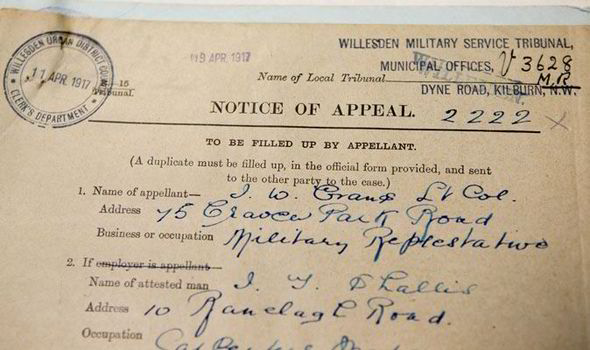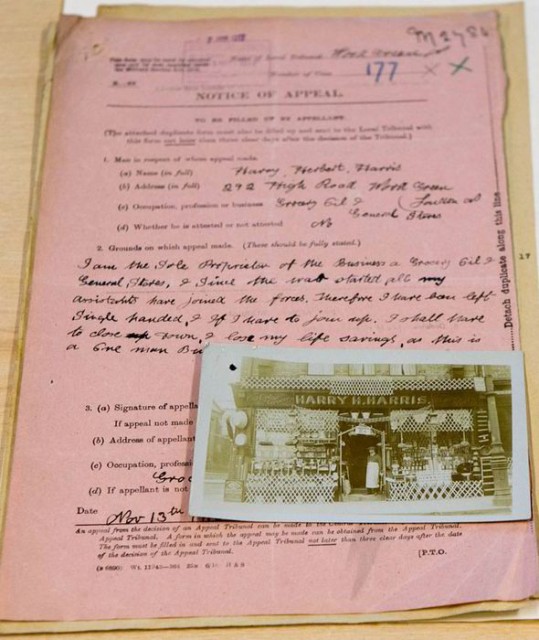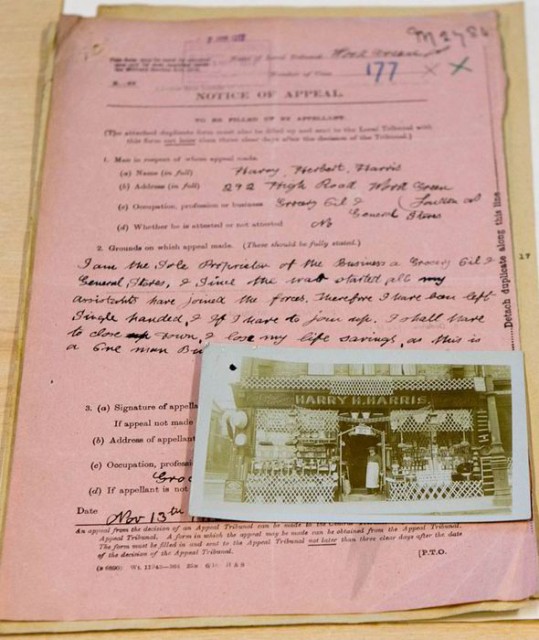The UK’s Express brings a story of 8,000 recorded attempts to avoid conscription during WWI. These tribunal records have been released online on January 22nd by the National Archives.
These documents consist of appeals that took place between 1916 and 1918. They have been digitized as part of the centenary of the war.
The documents include an appeal by munition company worker, John Gordon Shallis. He lost four brothers due to the war and had described his mother as a “cripple” on the appeal form—apparently she had broken her leg. In Shallis’ case, he was granted an exemption.
Harry George Ward was not as fortunate. His appeal against conscription on “conscientious grounds based on his socialist beliefs” were dismissed. The chairman of the tribunal noted that “as a socialist, he could not possibly have a conscience.”
The documents also show the attitudes of the local communities to people who were seen as avoiding their duties. There was an anonymous letter about a man named Charles Rubens Busby from a neighbor. The letter was sent directly to the tribunal and asked questions why he was allowed to keep his butchers shop and not serve the military, while “married men had to shut up their shop and go.”
Mr. Busby later served with the Royal Navy and the Royal Air Force between 1917 and 1918.
The collection of papers are one of two only surviving collection of tribunal records. These record reveal men who sought exemption based on medical, family, or economic grounds. The papers even have a few men who wished not to fight based on moral grounds as conscientious objectors.
The National Archives said the papers also had insight into personal circumstances. These included letters, medical certificates, statements, and even religious pamphlets. There were also some business information included for some of the requests.
Chris Barnes is the records specialist at the National Archives. He stated: The conscription appeal records provide a different perspective of the First World War away from the battles, revealing the impact the war had on the home front.
“Digitizing this collection opens up the records to allow people across the globe to discover the lesser-known stories of First World War for themselves.”
There were 11,307 separate appeals that were heard in two years. Of these, only 577 appeals were based on conscientious objects to the war. This equated to about 5%.
The sensitive nature behind the appeals against conscription during and after the First World War had meant only a small minority of the papers survived.
In the years that came after the war ended, the Government issued instructions to all local government boards that all tribunal material should be destroyed. Middlesex Appeal records were exempt, as well was a similar set for Lothian and Peebles in Scotland. Those were to be kept as a benchmark for possible use in the future.
There were a small sample of records from the Central Tribunal that were kept also.


